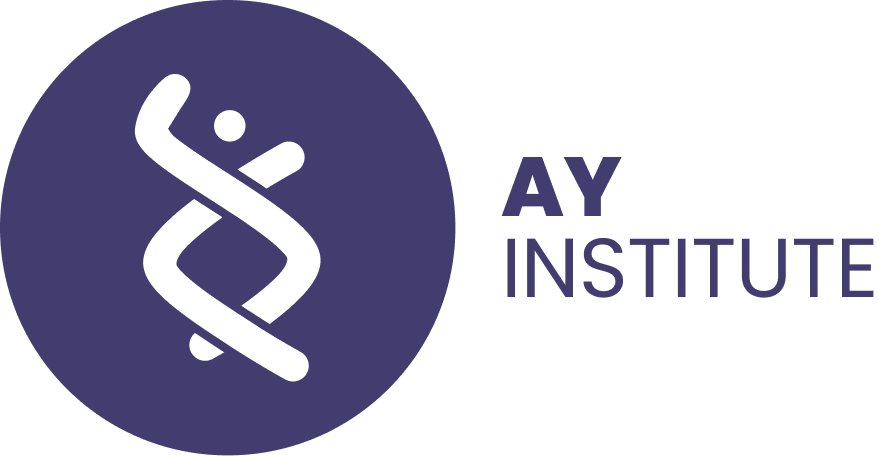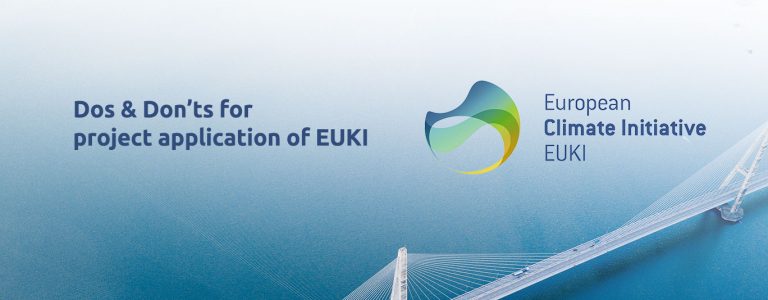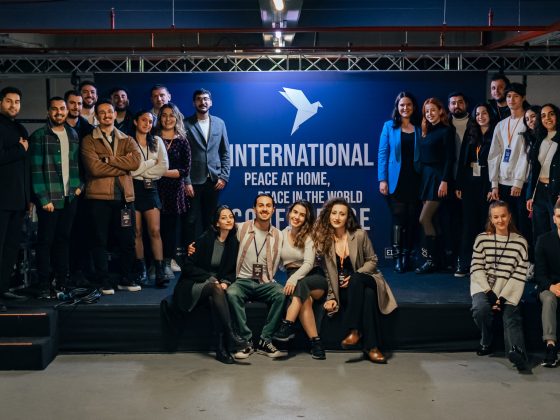EUKI or the European Climate Initiative – is a two-stage project call from the German Ministry of Environment. As its name suggests EUKI focuses on climate action (i.e., projects that contribute to reduced CO2 footprint, etc.). In this post, we will look into 1st stage EUKI project application.
Please note, that EUKI is for European countries only. With a preference (extra points) for south-eastern, central Europe & the Baltics. Moreover, the applicant’s head office must be located within the EU.
In short: this blog post does not give all the details about EUKI call itself. Instead, we will assume you already know them. And here we will be talking about dos and don’ts when filling in EUKI project application.
Est. reading time: 5-6 minutes
About the author: Active Youth Association is a leading youth organisation based in the EU. We have a goal of building the capacities of NGOs globally. Hence, we openly share our top insights (on youth work, project writing, etc.). Moreover, we run a EUKI project ourselves (read about it at the bottom of this post).
If you want to get more details about EUKI project call, please visit their website. Or, read a summary below.
Summary of EUKI project call
- EUKI is for whom: Europe-based organisations that are working in the field of climate/environment
- Deadline (for 1st stage): 12th of March 2024 (contact us)
- Duration: 18 to 29 months
- Budget: from €120,000 to €1 million. Finance rate: normally, up to 95% of the total volume
- Overall success rate: ~18% of the 1st stage proposals succeeded
However, note that there is a financial capacity requirement for the leading partner. In short, the project’s annual budget cannot be higher than the average income of the leading partner in the past 3 years. Sounds complicated? Let us give an example:
Your organisation has been getting a steady income of €100,000 in the past 3 years. This means that your organisation’s average income is €100,000. So, how big can your budget for EUKI project get? If you choose to have a project of the longest possible duration (i.e., 28 months), then your maximum EUKI grant can be €233,333 (that is, 2 years times €100,000 + 4 months times €8,333). Explanation: since the last year of the project is only 4 months, you need to take the monthly average income & multiply it by the number of months.
Okay, that is it with the main details. Let us get to the main part. Tips & tricks, which will improve your EUKI project application.
4 Things to Know When Writing EUKI Project Application
4. Master the results’ chain
The whole 4th part of EUKI project application (stage 1) is basically a logical framework (or results chain). Meaning:
- You will need to describe the long-term impact (I.e., overarching fundamental change you want to make with your project)
- Outcomes (i.e., expected impacts, which are required for the fundamental change)
- Outputs (that will lead to outcomes)
- Activities (that will produce those outputs)
While it may not seem difficult, a lot of mistakes are made here. One of the biggest is a lack of consistency. In other words, missing logical link(s) between activities, outputs and outcomes. We would not talk about it, but that happens more often than not.
So how to avoid the inconsistency mistake?
Well, one way is building a simple logical framework. Which in a way is a table (where one can see how your activities lead to certain results). A few tips here:
- Start with the impact and go backwards. Remember, the most important thing is the overarching change you want to make. Everything else needs to be based on that.
For example: you would like to reduce the CO2 footprint in your locality. Okay, now you can think what outcomes are necessary for that fundamental change. They could be: 1) less co2 emitted by transport; 2) less co2 emitted by buildings. What’s next? You need to consider the outputs (e.g. more cyclists, bigger cycling network), which are needed to produce the expected outcomes. And, so on.
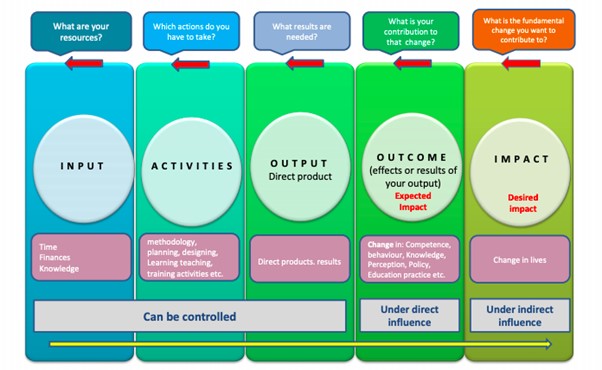
A logical framework explained graphically. One needs to start from the impact and go backwards (to outcomes, outputs and so on)
- Name / number your outputs. That is a small but important bit. Why do that? It will save space (see the next tip). Also, it will be easier for the evaluators to navigate your application. And the easier it is, the more likely they’re to reward you (hopefully, with higher points)
Example: Output 1 (Cycling network) – O1 / Output 2 (More cyclists) – O2, etc.
Want to learn more about building perfect logical links in your proposal? Then this 6-step guide is the answer.
3. Be brief, the character limit is there for a reason
EUKI project application (in the 1st stage) has stringent character limits for every answer. These range from 400 to 2000 characters. With spaces! That is not a lot of text. Which is great because you do not need to give marginal detail.
On the other hand, limited space for the answers requires you to tell a lot with a few words. For some, it might be a challenge. Our recommendations here:
- Use abbreviations (for example ‘Guidebook for Youth Workers’ should become ‘GYW’). Of course, be in a habit to explain your abbreviations before using them
- Remove the niceties and exaggerating adjectives (e.g., ‘very substantial’ can be just ‘substantial’)
- Using lists / bullet points can help in avoiding using redundant words. See two examples in the table below:
|
Character count: 113 The project will include a research of the situation. It will also have a pilot programme (based on the research) |
Character count: 90 The project will include:
|
By using a simple list, we have just saved 20-25% of character space. Which can be used for other important details. Also, it makes your text more readable. More on which – below.
2. Use formatting, it will improve readability
A few things that we recommend using to boost readability:
- Headings – this will help the reader find the wanted information. For example, one part (of the answer) might talk about ‘Objectives’, another – about ‘Key activities’. Ensure the reader (i.e., the evaluator) is not lost
- CAPS – to highlight certain parts, which need the attention of the evaluator
- Bullet points, numbering – to improve readability/understanding of your text
This might be a lot to swallow. Hence, we have a quick example for you. Look at the dummy text below (with and without formatting):

A comparison of project answers with and without formatting. Which one is less daunting?
Which text would you rather read? Even though it is the same Latin gibberish, the text on the right is more pleasant to the eye. Why does that matter? Unfortunately, your answers will sometimes be skimmed by evaluators. In other words, they will not have time to delve into your project as deeply as you would like them to. Therefore, you need to make sure they can find the right information easily. For this use formatting.
These were just a few tips on how to improve your project writing style. Need more? Then we would recommend this – top 10 tips & tricks to improve project readability.
1. Thinking long-term is the key
EUKI (the European Climate Initiative) seeks sustainability more than anything. Well, it makes sense given their focus (climate / carbon neutrality). So, how to make sure your project proposal is sufficiently sustainable? What are the recommended mechanisms to be put in place?
- Try to establish a network of relevant stakeholders (e.g., authorities, NGOs, and similar projects). This will improve the chances that your project’s outputs will be replicated. Note that letters of support from such stakeholders are almost a must
- I will repeat myself but try to include policy-makers. That is because EUKI seeks to ingrain the results of the funded projects into local policies. Thus, sustaining the impact in the long-term
- Find existing projects with which you could cooperate. Meaning building upon their results and/or sharing yours. Reaching climate neutrality requires a massive team effort. So, show the evaluators that you are a team player
Note: letters of support are a great way to prove that you have/seek the above.
How to boost your success in EUKI project application?
✍️ Let us know, we will always provide a consultation at no cost. E.g., check whether / why your project is suitable for EUKI. If needed we can help to write the project proposal as well. Learn more here.
🤝 Looking for strong partners for your project: the idea might be relevant to our organisation, so why not us? Check out our PIF (partner information file).
Any more tips for project writing?
We recommend our online courses (on grant writing) or these guides:
What about other project calls?
Check out our insights for:
- EEA & Norway Grants Fund for Youth Employment
- Erasmus+ KA2 Strategic Partnership
- Erasmus+ KA2 Capacity Building in the Field of Youth (CBY)
What is Active Youth’s EUKI project?
To be brief, it’s a Mobile Climate Exhibition, which will travel the Baltics. Check it out here ›
